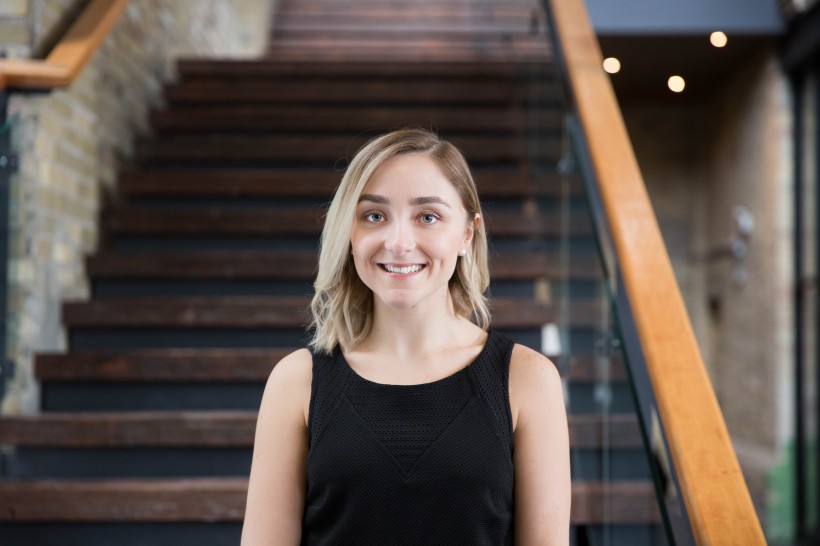New entrepreneurs are advised to find a problem, or pain, to solve, and consult with prospective clients before proceeding. Chrissy Rossiter did so and is now helping companies that care for seniors in their own homes streamline and improve care.
Rossiter, the CEO of software company Peachy, and her co-founder Diego Zuluaga, initially founded their venture to help seniors with health-related tasks such as remembering to take medication and check blood pressure.
The idea was for the product to be used by seniors at home. But after consulting with seniors, their families and doctors, the founders changed course.
“We realized the concept of frequent text alerts was not necessarily part of seniors’ daily routine,” Rossiter said from Peachy’s base in St. John ‘s.
“We then looked at working with retirement homes, but we didn’t want to do that. We didn’t feel the same pain problem.”
The pair decided that, as most seniors want to live at home for as long as possible, they would make it easier for them to do so.
Working with the managers of home care agencies seemed a good idea, as the agencies oversee the home support workers who provide the care.
“Managers at the agencies deal with many issues. They manage hundreds of staff working remotely. They are run ragged, adjusting work and other schedules on paper or on complicated software,” Rossiter said.
“By automatically updating employee hours with shift information we remove the need for managers to manually make changes at the end of the pay period, which can take more than six days a month.
“And by automating the flow of information, we improve payroll and invoicing accuracy.”
She said Peachy has many competitors, but Peachy’s advantage is it’s simple and easy to use.
“Some other products can take 20 hours of training to use,” she said.
“A lot of software offers many features for a price. We are for the small to medium companies that can afford our product.”
She said the Peachy software is more affordable because it has fewer features.
“We’re currently running a beta test with early adopters,” she said. “We will be increasing the number of features but will continue to focus on simplicity and ease of use.”
Peachy evolved from Rossiter’s experience of working in a retirement home.
“I’d always wanted to start a business. I asked myself, what do I care about? What problem do I want to solve? In the home, I served food and felt I had an impact. I’m also really close to my grandparents.
“By helping the companies that help the seniors, we allow the companies to improve the quality of care they provide.”
Peachy has got off to a promising start. The Peachy founders are both students at Memorial University and they won the Memorial Centre for Entrepreneurship Startup Cup in April 2017.
The contest, which is funded by the local business community, gave them $10,000 with which to operate.
Peachy was recently one of five Atlantic Canadian companies to take part in the prestigious Fierce Founders bootcamp for female entrepreneurs run at the Communitech technology hub in Kitchener, Ontario.
Rossiter said the experience allowed her to see the big picture of running a business and make connections with other women, which is especially valuable in a male-dominated sector.
“I spend most of my day talking to guys at the Memorial Centre for Entrepreneurship. There’s nothing wrong with that, but together we women can have conversations we wouldn’t have with the men.”
Rossiter and Zuluaga will both soon graduate from Memorial — Rossiter with a business degree, Zuluaga with computer science. Then they will be able to focus on Peachy.
They plan to target the U.S. market, which has a huge number of care providers. They also aim to develop an app for the workers who deliver the care to seniors.










